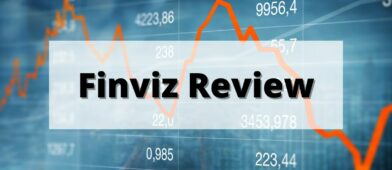In 2008, Warren Buffett offered a million dollar bet to any hedge fund brave enough to accept – an S&P 500 index fund would beat any portfolio of hedge funds over 10 years. Ted Seides, a co-founder of Protégé Partners, took the bet.
In 2019, eight months before the end of the bet, Seides conceded.
It’s almost impossible to beat the market.
Trained professionals, who spend all of their time doing this, are unable to do so on a regular basis.
The only skill you need to beat those trained professionals is the ability to be patient. Buy and hold. And then wait.
Patience, however, is not one of my strong suits. When it comes to business or sports or anything else, I want to be moving. More practice. More work. More everything.
But that’s not what makes you a better investor because it doesn’t lean on my only advantage against the professionals – time. In a world where the professionals are measured in their performance each quarter and year, my performance is measured in decades.
How has a generally impatient person become a patient investor?
Table of Contents
Leverage the Impatience Elsewhere
If you aren’t a patient person, it’s impossible to force yourself to be patient. I’ve tried. It doesn’t work.
No amount of data and convincing will work. If you have a bias for action, you have a bias for action. Don’t try to temper it because it’s likely contributed to your success in other areas.
Leverage that bias for action towards those other areas.
One of the surprising facts about investing is that, and this is anecdotal, the best performing portfolios are the ones that were forgotten. I wish I could find that Fidelity study cited by Barry Ritholtz and James O’Shaughnessy but I’ve failed every time I’ve tried.
The best way to be a patient investor is to put your focus elsewhere.
Investing, and money in general, is just one aspect of your life. Money is an important part but if we viewed your life as a stool, what are the other legs? Your mental and physical health? Your relationships? Your career?
Where can you put that energy and attention in a way that benefits your life? One easy way, for me, is to channel it in the gym. Whether it’s running or lifting, putting the bias towards action in the direction of fitness has improved my life considerably. It also has immediate benefits.
But you can channel that impatient to anything that you want to improve – the important part is that you channel it away from messing with your investments.
Identify What Excites You
If you’re tempted to futz around with your portfolio, what do you find appealing about it?
Do you want to get a slightly better return? Or do you just want to beat the market and be proud of that achievement?
Do you enjoy the research or simply the result?
Or do you just want to gamble a little? Feel the rush of buying a stock and seeing if it goes up or down?
If you’re able to figure out what you enjoy about it, you can find other activities that can scratch that itch for you.
A lot of investors enjoy games like chess and poker because it tickles similar parts of the brain. Chess is a game of perfect information and requires a lot of study if you wish to get good. Poker is a game of imperfect information where you are competing against a group of other people, often with financial stakes involved.
Want something physical? Try golf. It’s really hard to hit a tiny little ball. It’s even harder to hit it a hundred times (or more!) over the course of several hours. You’ll learn a lot about how you manage frustration and regulate your emotions during a round of golf. You’ll learn a lot about your playing partners too!
You can play at levels that don’t risk much financially but can still scratch that itch.
✨ Related: Don’t Personally Identify with Your Investments
Stop Reading Financial News
Any information you see on TV, let alone anything printed in a newspaper or magazine, is wildly outdated. It’s already been priced into the stock.
Before it made it to press, a human being had that information and passed it along to someone else. You won’t discover a new insight from those sources.
And financial news isn’t really news, it’s entertainment. You might learn something new but it’s not going to be useful for you from an investing perspective.
If you turn on CNBC or another financial news channel, there’s a lot of frenetic activity on the screen with all the numbers and the ticker rolling by. It’s all to create this feeling that there’s a ton of action going on and you need to get in on it. (it’s like the roulette wheel’s historical number screen… it’s all for show!)
The more you watch it, the more you’ll think you need to do something.
The more you watch it, the more you think you know.
And it’s just enough Dunning Kruger in there for you to be the sucker at the table.
Check Your Portfolio Less Often
I used to have my stocks in a Google Finance portfolio (before they shut it down) and I’d check it every day. I didn’t do anything because my stocks were in another brokerage account… but checking every day was like watching the scrolling ticker on CNBC.
If my holdings were up or down, I thought maybe I should do something about it.
Lock in gains?
Cut my losses?
Now, I only check it once a month when I enter my numbers into my new worth spreadsheet. It’s frequent enough that I am still aware of it’s performance but not enough that I feel like I should mess with it. I also tend to check it after the markets are closed, so it’s even less of an incentive to take action.
Consider Paper Trading
If all else fails and you really want to trade, consider paper trading first. Think of it as playing with training wheels to see if you can deliver results on paper before you put any of your real money in the market.
Paper trading isn’t as exciting as real trading because of the stakes but all the other ingredients are there – you have to do the research, there is a score, and you can prove to yourself without a doubt whether you can beat the market.
If you can, go for it with a small bankroll. Maybe you’re better than all the portfolio managers out there and you discover your true calling. 🙂



An excellent reminder. Thank you.
You’re welcome!